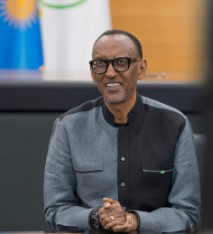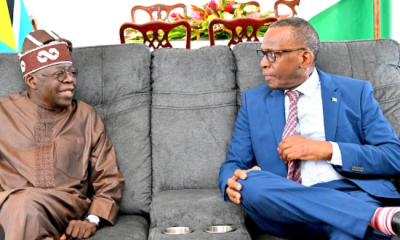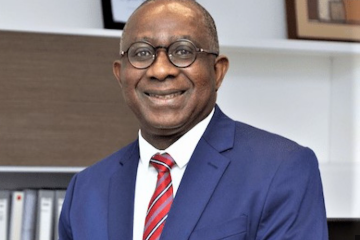Business
There is need to transform Africa into knowledge-based economy – Osinbajo
Published
4 years agoon
By
Seun Owope
There is need to transform Africa into knowledge-based economy – Osinbajo.
Vice-President Yemi Osinbajo has called for appropriate strategy crucial to transforming Africa into knowledge-based and innovation-led society.
Osinbajo made the call through Mrs Maryam Katagum, Minister of State for Industry, Trade and Investment, who represented him at the maiden edition of the Abuja Chamber of Commerce and Industry (ACCI) Young CEOs Summit.
He identified Africa’s vibrant human resources as its greatest hope for development.
“Young people make up the bulk of Africa’s population with an estimated 75 per cent of the continent’s population below the age of 35 years.
“From a demographic point of view, this calls for a paradigm shift towards the recognition and support of young people to harness their potential.
“Therefore, to accelerate Africa’s transition to an innovation-led, knowledge-based economy, our human resources must be empowered with requisite skills.
“Greater emphasis must be placed on innovation, including appropriate adaptation of technology,’’ Katagum said on behalf of Osinbajo.
She emphasised the need to promote creativity and innovative technologies to process the continent’s abundant resources locally in addition to creating more wealth and jobs for the continent.
She said there was the need to develop internal capacities and marketing of new or improved products and services through engagement with end users.
The Federal Ministry of Science and Technology had been rebranded to meet future technology demands, the vice-president’s representative said.
“This will create new opportunities for value-added employment and the nation’s GDP will improve as a result of innovation and technological development,’’ Katagum added.
She expressed hope that Africa would continue to develop capacities to take advantage of relevant technologies to facilitate e-commerce and leadership excellence.
“Leaders are expected to think creatively and facilitate the creative work of others, but traditional approaches to developing leaders have not fully addressed this need.
“A key problem with regards to developing creative and innovative leadership capacity is the low leverage on technology.
“Young leaders must explore and leverage on technology means such as e-mentoring, multisource feedback, social media, and succession planning programmes,’’ she said.
She also reiterated Federal Government’s commitment to create an enabling environment to facilitate the actualisation of innovative ideas developed by the youth.
According to her, the place of technology in Africa’s development is critical, and what these new-age entrepreneurs are doing is using technology to make commerce easier across board.
She also called for strengthened synergy between African nations and the youth to facilitate sustainable and inclusive growth and development within the continent.
“As government, we shall continue to create the necessary enabling environment to support our youth to excel in every field of endeavour.
“I am convinced that with young CEOs like you, the prospects for Nigeria and Africa are bright,’’ Katagum said.
In his address of welcome, President of ACCI, Dr Al-Mujtaba Abubakar, described the importance of engaging youth in all aspects of the Nigerian economy as a default priority.
He said that the chamber established the Young CEOs category to amplify the voice of young business people.
“It was established to support young business owners through mentorship and capacity building.
“The Young CEOs membership cadre will amplify the voice of our young business people who hitherto had no voice for mentorship, guidance, business linkages, and support,’’ he stressed.
While encouraging young business men and women to be part of the cadre, Abubakar said that the registration process was not cumbersome.
“As part of efforts to encourage young people to participate in the new category, we have made the registration process not cumbersome.
“We also subsidise the registration fee to accommodate as many young business people as possible.
“We encourage those that have registered to reach out to other young business minds so that they can also benefit from the Chamber because the future belongs to the youth of today,’’ Abubakar said.
In his remarks, Mr Fife Banks, Chairman, Young CEOs, said that the summit was part of strategic initiatives to engage widely with stakeholders in public, private, development and diplomatic sectors.
This, he explained, was to advance their collective thinking on topical issues.
According to Banks, it is to catalyse a collective move from ideas to action, from solipsistic point-of-views to inclusive policies, and from politics of poverty to politics of prosperity.
Solipsism is the idea that only one’s mind is sure to exist.
“Nigeria is replete with challenges but Young CEOs are not one of the challenges. In fact, we are the solution.
“Apart from the fact that Nigeria is indeed a nation of young people, majority of the non-oil income we have as a nation can be traced to the efforts of some young people somewhere.
“We are not just here to help the country make money or to make money for ourselves, or create jobs for other young people; we are here to collaborate with policymakers and public office holders.
“This is with a view to help to make meaning of the unprecedented changes the world is experiencing,’’ Banks said.
The summit had “Leveraging Technology for Sustainable Commerce and Leadership for Young CEOs’’ as its theme.
You may like


Rwanda lowers contraception age to 15 to combat rising teen pregnancy


Nigeria, Saint Lucia to establish formal diplomatic ties as Tinubu meets Prime Minister Pierre


Industrialisation does not occur by accident- Prof Banji Oyeyinka


W’Cup Qualifiers: Nigeria host Zimbabwe, other 21 fixtures for Monday, Tuesday
President Tinubu, Sierra Leonean President Bio meet behind closed doors at Aso Rock


Video : Shocking revelations on NGOs and their impact in Nigeria: A New Exposé
Trending

 Entertainment6 days ago
Entertainment6 days agoSimi addresses resurfaced 2012 tweets amid online backlash

 Health1 week ago
Health1 week agoSCFN, LUTH introduce bone marrow transplants as curative treatment for sickle cell

 Health4 days ago
Health4 days agoDeclassified CIA memo explored concealing mind-control drugs in vaccines

 Football1 week ago
Football1 week agoHarry Kane nets brace as Bayern edge Frankfurt 3–2 to go nine points clear

 Football1 week ago
Football1 week agoLate Flemming header stuns Chelsea as Burnley snatch 1–1 draw at Stamford Bridge

 Crime5 days ago
Crime5 days agoSenior police officers faces retirement after Disu’s appointment as acting IGP

 Education6 days ago
Education6 days agoPeter Obi urges JAMB to address registration challenges ahead of exams

 Health6 days ago
Health6 days agoNAFDAC issues alert on suspected revalidated SMA Gold infant formula

